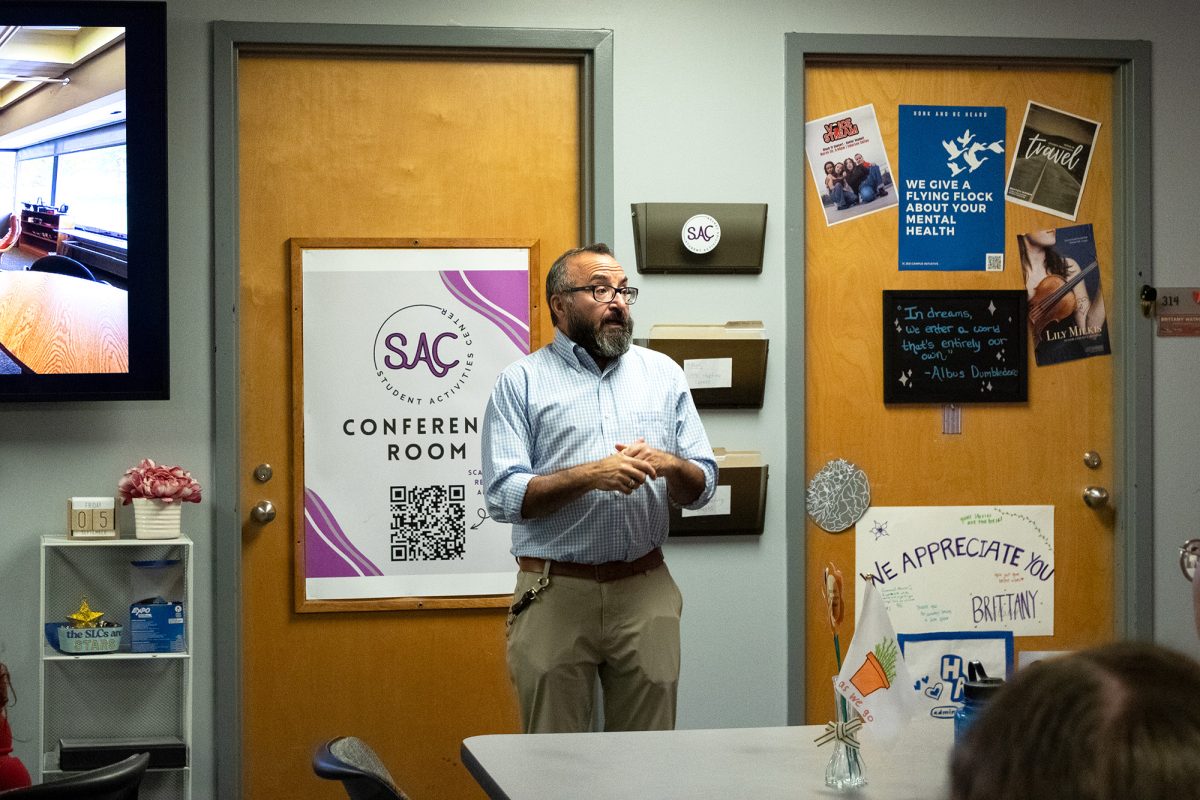Ithaca College students longing for the more vibrant social atmosphere of Cornell University’s fraternities and sororities now have less reason to be jealous. At least part of the party is over.
Click here for a multimedia package about the changes

In an effort to curb underage drinking, Cornell Interfraternity Council has made changes to the official Recognition Policy, notably adding an enforced dry rush night. Yet, many are calling into question the effectiveness of these changes.
The first dry night was held Jan. 18, the first night of fraternity recruitment for the spring. Fraternities officially complied with the policy, yet many houses hosted informal, off-campus events with alcohol following the regulated dry events.
The IFC started making changes to the Greek system last fall by creating a dry recruitment weekend and installing a Social Responsibility Committee, a third party hired to monitor parties during the recruitment process and throughout the school year.
The IFC included the required dry night of rush in an amendment to the IFC’s Recognition Policy, which is a set of guidelines that the fraternities must follow in order to be recognized at the university.
The amendment is set up as an 18-24 month plan to create a safer Greek system and deter the focus of recruitment away from alcohol. Major provisions of the amendment include banning alcohol, drugs and hazing during new member recruitment and education.
Cornell junior and IFC President Daniel Freshman, of Lambda Chi Alpha, said dry rush gives Greek members a chance to focus on the goals and values of the fraternities, rather than put the significance strictly on alcohol. At the moment, the dry night is only required for fraternities, but Freshman expects sororities will also have to implement dry rush in the future.
“It’s something that is non-negotiable at this point,” he said. After this two-and-a-half-year period, chapters need to learn how to recruit in different ways. They need to learn how to transition for, really, their own benefit.”
Despite the change, new students were not deterred from recruitment-related activities, and the number of new students registered for spring recruitment was on par with previous years.
In addition to the turnout numbers, the IFC called the dry night an overall success, despite some fraternities who violated the new rules, according to Kara Miller, dean of students and adviser to the IFC.
“There were some chapters caught with alcohol in their facility but not serving it to guests,” she said.
However, since the dry night was enforced only at on-campus fraternity houses, David,* a Cornell freshman that went through the rushing process, said the dry rush night was not effective because the fraternities had alcohol at after parties anyway.
“From a certain time, the frats were just dry and very effective without alcohol,” he said. “Then, almost every single frat moved to Collegetown and had events with alcohol. I thought the dry night was a good idea, but then I realized that it’s probably a lot more dangerous to be drinking in Collegetown.”
Miller said alcohol should not be necessary in encouraging people to get involved in a fraternity.
If a fraternity is caught violating the IFC’s rule, the IFC may charge the fraternity in question and, in some extreme circumstances, report the incident to national chapters.
Cornell sophomore Jon Weinberg said even before the IFC created the dry night, fraternities held events for rushers to socialize without alcohol.
“During the day there are Smokers — dry meet and greets with the brothers,” he said. “You get the dry exposure to them. The night events are there to see how the guys have fun and get exposed to the social aspect. And the fact of the matter is — and it’s not a Cornell problem, it’s everywhere — a very prominent part in many social activities is alcohol.”
Cornell sophomore and Tau Epsilon Phi member Max Blumenthal said the dry rush was well-intentioned but did little to help curb underage drinking.
“It’s going to create more dangerous ways that fraternities are going to try to get around the rules,” he said.
As the IFC and the Greek community at Cornell continue to work together to help make new member recruitment as safe as possible, Weinberg said it’s important to remember that alcohol isn’t a big component of the Greek system.
“It’s unfortunate that people think, ‘Oh, it’s a fraternity, they have to get drunk to have fun,’ or, ‘They can’t follow the dry rule, they are alcohol-dependent,’ when it’s really just a stereotype of the Greek system. It’s really not the case; we don’t need alcohol,” he said.
*Names have been changed to protect anonymity.
Additional reporting by Assistant News Editor Kelsey O’Connor.







